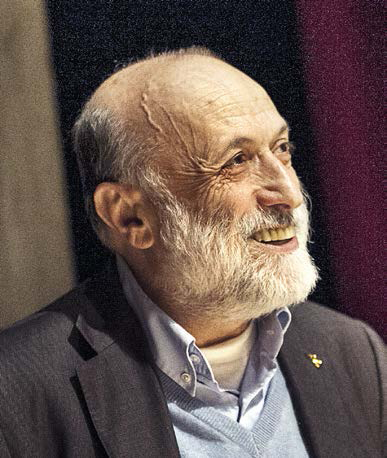 Every living being is the result of relationships that are influenced by context and, in turn, capable of influencing the natural and social environment around them. We are open systems with circular dynamics in a terrestrial ecosystem with these very characteristics. As living beings, we are characterised by circularity. Therefore, when we interrupt this circularity we create problems at a system level.
Every living being is the result of relationships that are influenced by context and, in turn, capable of influencing the natural and social environment around them. We are open systems with circular dynamics in a terrestrial ecosystem with these very characteristics. As living beings, we are characterised by circularity. Therefore, when we interrupt this circularity we create problems at a system level.
In this scenario, food offers a privileged perspective from which to discover the properties and potential of circular thinking. Food is the vital link in the circular process of metabolising matter in the human body and transforming it into energy. Information flows characterise circular feedback mechanisms, starting and driving the evolution of species. Food is the base connecting unit and is a field of priority for experimenting a new way of understanding the production and consumption of goods, a new approach to raw materials and waste, and a new paradigm with which to build integrated economic and social relations that are useful for all.
Developing a new economic model that starts from food means refocussing on communities, on the quality of relations and the substance of behaviour. Food is a local structuring agent because it is still connected to actual needs. This does not imply dealing exclusively with what keeps us alive, on the contrary, it means exploring new complex territories pertaining to social relations, community, identity and the spirituality of each human being, everywhere and from all socio/cultural backgrounds.
The extractive and linear economy, based on profit maximisation and relentless cost reduction, and hinged on the concept of waste and disposal, has slowly but inexorably colonised our imagination and way of thinking, increasingly homogenising our mental processes to those of production. This phenomenon is particularly evident in relation to food, where common practices involve production scenarios that keep exploiting people and raw materials, where standardisation is the norm and based on the greedy rules of financial markets, generating negative impacts on our planet’s natural, social and cultural capital. We must emphasise that respecting the planet, first of all, means taking care of ourselves and giving future ecosystems the opportunity to benefit from what we feed back into them.
We must limit our desire for daily gratifications, in order to respect the planetary and social boundaries of a system whose dynamic balance we must not upset.
This is why it is necessary to develop new partnerships, to share values and goals, to curb the irrational use of resources, to try and mend the social fabric that must be both the starting point and driving force of the change we hope to see. People make the economy, and a model that depletes natural resources goes hand in hand with labour exploitation, income inequality and the marginalisation of community and social interests. In essence, the social and environmental crises we are witnessing cannot be separated. There is no duality whereby: on the one hand we have a planetary resource problem and on the other a crises of global social fairness. These two issues are intrinsically connected and integrated, and as such they must be tackled. There is no environmentalism without fighting poverty and there is no social advancement without ecology.
We must develop this dialogue, rethinking and redesigning a regenerative and circular economy, and paying attention to the preservation of the extraordinary knowledge that the planetary library can offer us. Thinking at a system level is the necessary condition for understanding how different parts influence each other, how we can move from a model based around competition to one of collaboration amongst the players of the same system, and how the circular concept cannot be reduced to the simple definition of “waste economy.” Let’s not waste this golden opportunity for a shift in paradigm; we urgently and desperately need it.
Slow Food, www.slowfood.com


